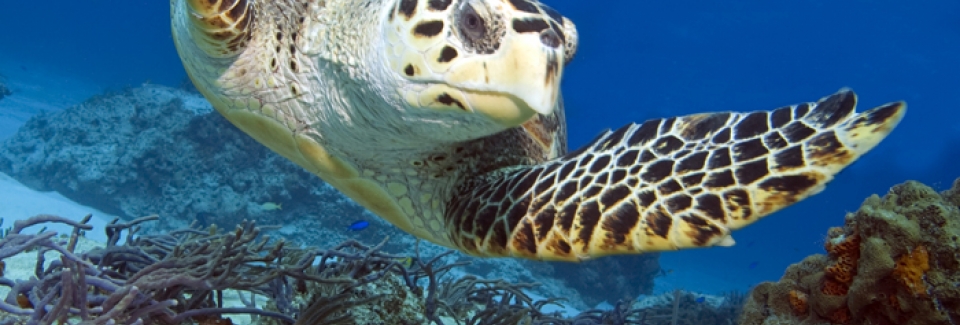Cayman Islands safeguarding marine environments
The Cayman Islands' private sector tourism body has publicly embraced the move to develop more secure marine environments for the future. The Cayman Islands Tourism Association (CITA) has offered its backing for plans outlined by the Department of Environment to protect reefs and fish stocks that are facing an uncertain future.
CITA said that protecting conch, lobster and grouper is no longer enough; reef fish, stingrays, sharks, transient mammals, pelagics and coral reefs also need protection and without new measures the health of the reefs will continue to decline.
“A healthy environment and coral reef systems are Cayman's biggest asset and why hundreds of thousands of tourists, residents and businesses live in or visit our islands each year. Protecting the environment is not only good for the environment, but very good for all business and tourism in the Cayman Islands,” CITA said in a statement released Monday as the DoE consultation period on their proposals drew to a close.
“CITA believes that most Caymanians are in favour of protecting their future and heritage, but not as many are prepared to take the actions needed today to ensure that there is a tomorrow,” the association said, adding that it was critical that the marine parks do not stay the same as that would be a step backwards. “The concept that the marine parks is 'taking away' is incorrect; the marine parks are giving back and the expansions proposed will do just that -- give back more healthy reefs, more fishing stock and more opportunities to make a livelihood from the seas.”
Although not everyone agrees on the exact details on the proposed new marine parks when asked, most people want to retain the marine park system. The DoE has recently provided extensive evidence that the existing protections and reserves in place have had a positive impact but are no longer sufficient, given the mounting threats to reef health and fish stocks.
DoE Director Gina Ebanks-Petrie has explained on numerous occasions during the last few months that the threats faced by the marine environment today are far worse than those it faced 25 years ago when the marine zones were created, including continuing development, invasive lionfish, coral bleaching, climate change and much more.
The DoE recently engaged in an extensive consultation process on the plans it has outlined. It will now spend the next few weeks developing a policy recommendation to present to Cabinet that will attempt to strike the delicate balance between the needs of the environment based on scientific research with the wants of the community, especially those who are fishing or make a living in local waters.
CITA said its members are concerned about what the reefs will look like in the year 2037, 25 years from now. “We all know that time will come, but won't know until then if we protected enough, too much or too little -- 2 of these outcomes we will be thanked for, the other held to blame,” the association said in a statement. “More marine park reserves means more fish for divers, for snorkelers, for fishermen, for the health of the reefs. This has been proven by the Department of Environment studies over the last 25 years.”
CITA called for resources to enforce and protect what is at risk under any new expansion of the marine parks to safeguard the environment from poachers and violators.
For more details about the marine park expansion contact the DoE on 949 8469 or visit www.doe.ky.













